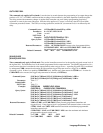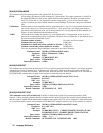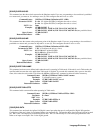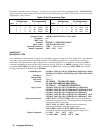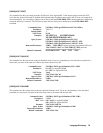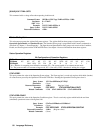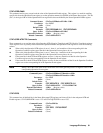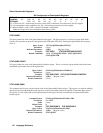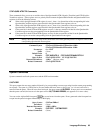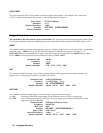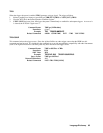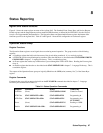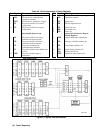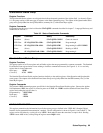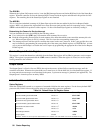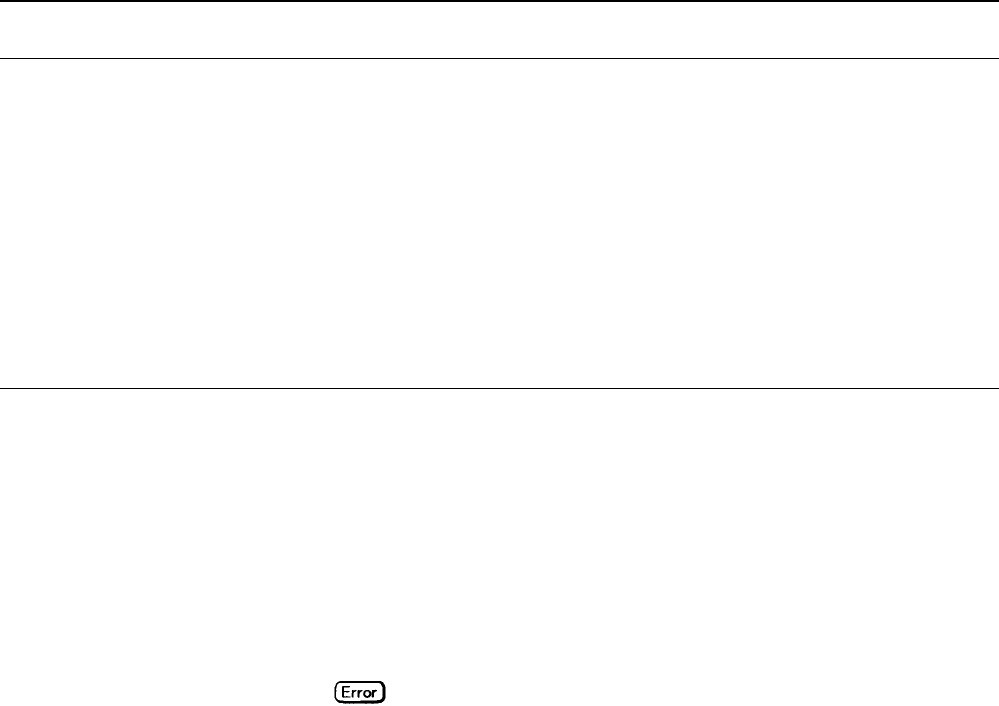
Language Dictionary 83
STAT:QUES NTR/PTR Commands
These commands allow you to set or read the value of the Questionable NTR (Negative-Transition) and PTR (Positive-
Transition) registers. These registers serve as polarity filters between the Questionable Enable and Questionable Event
registers to cause the following actions:
l When a bit in the Questionable NTR register is set to 1, then a 1-to-0 transition of the corresponding bit in the
Questionable Condition register causes that bit in the Questionable Event register to be set.
l When a bit of the Questionable PTR register is set to 1, then a 0-to-1 transition of the corresponding bit in the
Questionable Condition register causes that bit in the Questionable Event register to be set.
l If the same bits in both NTR and PTR registers are set to 1, then any transition of that bit at the Questionable
Condition register sets the corresponding bit in the Questionable Event register.
l If the same bits in both NTR and PTR registers are set to 0, then no transition of that bit at the Questionable
Condition register can set the corresponding bit in the Questionable Event register.
Note Setting a bit in the value of the PTR or NTR filter can of itself generate positive or negative events in the
corresponding Questionable Event register.
Command Syntax STATus:QUEStionable:NTRansition <NRf>
STATus:QUEStionable:PTRansition <NRf>
Parameters 0 to 32767
Suffix (None)
Default Value 0
Examples STAT:QUES:NTR 16 STATUS:QUESTIONABLE:PTR 512
Query Syntax STAT:QUES:NTR? STAT:QUES:PTR?
Returned Parameters <NR1> (Register value)
Related Commands STAT:QUES:ENAB
System Commands
System commands read back system errors and the SCPI version number.
SYST:ERR?
This query returns the next error number followed by its corresponding error message string from the remote programming
error queue. The queue is a FIFO (first-in, first-out) buffer that stores errors as they occur. As it is read, each error is
removed from the queue. When all errors have been read, the query returns 0, NO ERROR. If more errors are accumulated
than the queue can hold, the last error in the queue will be -350, TOO MANY ERRORS (see appendix C for error codes).
You can use the Agilent SAS front panel
key to read errors from the queue. Errors generated at the front panel are
not put into the queue but appear immediately on the display.
Query Syntax SYSTem:ERRor?
Parameters (None)
Returned Parameters <NRI>,<SRD>
Examples SYST:ERR? SYSTEM:ERROR?
Related Commands (None)



